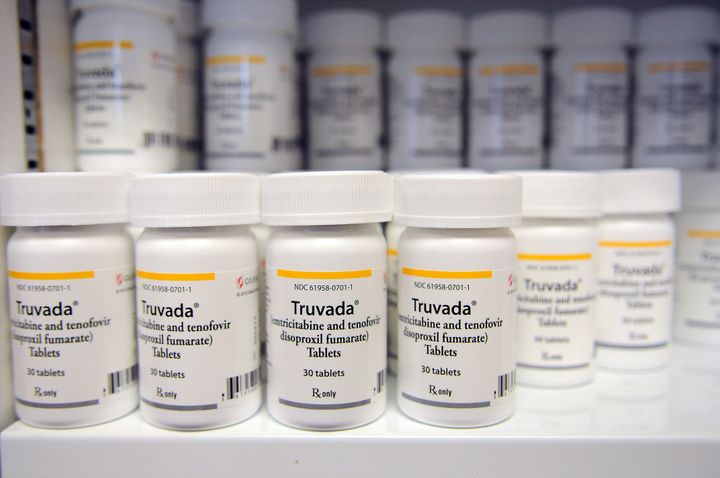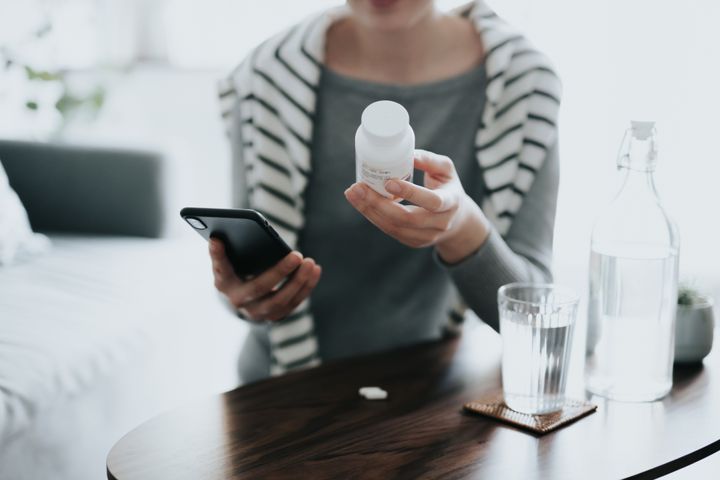When it comes to lowering your risk of getting infected with HIV, there is one immensely valuable yet grossly underused medication that doctors recommend.
The drug is known as PrEP, or pre-exposure prophylaxis, and is a medication that reduces the risk of someone getting HIV, said Dr. Shivanjali Shankaran, an infectious disease physician who specializes in HIV at RUSH University Medical Group in Chicago.
Advertisement
PrEP is an important HIV infection prevention tool that many folks either don’t know about or don’t think they’re eligible for. It’s estimated that only “about 30% of the people who should be on PrEP are on PrEP and of them in the U.S., only 7% of PrEP users are women,” Shankaran said.
There’s a dangerous myth that women can’t take PrEP, which is probably why use among this demographic is so low. But with 18% of new HIV diagnoses in the U.S. happening in women, prevention is necessary.
We spoke with experts about PrEP and why it’s valuable for everyone — including women. Here’s what they said:
PrEP is a medication that HIV-negative people can use to stay HIV-negative.
PrEP reduces the risk of becoming infected with HIV both via sexual activity and via injection drug use, Shankaran said.
Advertisement
The Centers for Disease Control states that PrEP lowers your risk of contracting HIV sexually by 99% and 74% when it comes to HIV contraction via injection drug use.
“The different studies had varying levels of protection, but most of those were related to how well someone adhered to taking the pills,” Shankaran explained. “So if you took the pills most of the time, if not all of the time, it’s very, very effective — obviously, if you don’t take it, it’s not going to be effective.”
There are currently three options for PrEP in the U.S.; two of the treatments are pills and one is an injectable. Cisgender women are eligible for two of the three treatments, according to Shankaran: Truvada, a pill treatment, and Apretude, which is the injectable medication.

MCT via Getty Images
“The CDC currently recommends that if you’re a cis woman, you take the medication, the Truvada, for example, if it is a pill, you take it every day, and about after about 21 days or so you’re fully protected,” Shankaran said.
Advertisement
For Apretude, the injectable medication, the time it takes for someone to be fully protected is unknown, according to the CDC. This is because the medication has been available for a shorter time, Shankaran said.
“The duration is shorter for men, also [men] can do sort of on-demand PrEP, where you take it if you’re going to have sex,” Shankaran explained. However, taking the medication “on demand” is not currently recommended for cis women.
Additionally, cisgender women cannot take Descovy, the third PrEP medication, which is also administered in pill form. “Because, unfortunately, studies were not done in cis women, and so there was not enough data in the use of Descovy … which is why it’s not approved for that use,” Shankaran said.
PrEP is just one part of a full strategy for people to stay HIV-free.
“The reason I say it’s a strategy because I think the medication, whether it be a pill, or injectable, is sort of just part of it — so, it’s either a pill a day that people can take, or an injectable medication every two months,” said Dr. Oni Blackstock, the founder and executive director of Health Justice, an organisation that works with health care groups to reduce health inequities and centre anti-racism.
But, beyond the pill or injectable, there are additional levels of care someone receives when they start PrEP.
Advertisement
“They’re going to be seeing a provider every few months, they’re going to be tested for sexually transmitted infections that can co-occur with HIV, they’ll be checked for how they’re tolerating the medication, they’ll be counselled on any sort of sexual or drug use behaviours that may be associated with HIV,” Blackstock said.
“So, I just think of it as sort of a bundle of care to help people who are HIV-negative stay HIV-negative,” she added.

d3sign via Getty Images
The marketing of PrEP, along with misinformation, has created the inaccurate idea that cisgender women can’t take the medication.
Through no fault of their own, many cisgender women do not know that PrEP is a medication they can use to reduce their risk of contracting HIV.
Advertisement
“Because PrEP has been historically heavily marketed to men who have sex with men … it really gave the impression that PrEP was not something that … cisgender women could take, and unfortunately, this is sort of reinforced by many health care providers.” Blackstock said, “I’ve heard stories of women saying, ‘Well, my doctor said this is something only gay men take or that I can’t take it if I’m pregnant or if I’m breastfeeding or if I’m trying to get pregnant.’”
(For the record, oral PrEP is safe for use in people who are pregnant, breastfeeding and trying to get pregnant.)
“So, there’s a lot of misinformation also from health care providers as well,” Blackstock noted.
The misinformation combined with the lack of marketing toward cisgender women has led to a low uptake of PrEP among this group, Blackstock said. Black women, who account for half of new HIV infections in women, are on PrEP even less.
When asked why this is the case, Blackstock said “it’s multifactorial.”
“Some of that has to do with women, particularly Black women thinking that they may not be at risk, so sort of low perceived risk of HIV, but it’s also because a lot of women may not be aware of PrEP because it’s something that health care providers aren’t talking to them about or offering.”
Additionally, it may have to do with health insurance coverage. “We know that the South is the epicentre of the HIV epidemic [and] there are many states in the South that haven’t expanded Medicaid, so for various reasons, Black women may not have access to PrEP,” Blackstock added.
Advertisement
Shankaran noted that for uninsured or underinsured people, there are still options.
“You can get access to medications, either via the CDC, they have something called a Ready Set PrEP program, as well as the manufacturer, they have programs where they can help you get medications, even if you are uninsured,” Shankaran said. (Keep in mind that everyone won’t qualify for these programs.)
PrEP is a powerful tool that puts women in control of their health.
You can take PrEP for as long as you are at risk of contracting HIV, Shankaran said, and you can stop taking it when you are no longer at risk. You can also pick it up again if necessary.
Additionally, you don’t have to go to an HIV doctor of infectious disease doctor for the medication. “Your primary care physician can prescribe it, some places family medicine [can prescribe], adolescent clinics [and] some places GYN clinics will prescribe it,” Shankaran said.
What’s more, you’re given peace of mind when you properly take PrEP.
“The really wonderful thing about PrEP is that it’s user-controlled, a woman can take it with or without her partner’s awareness and knowledge — some women may be in a situation where it may not be safe to share with their partner that they’re taking PrEP, but it allows a woman to protect herself,” Blackstock noted.
And just to underscore this point: PrEP is for people of all gender identities and sexual orientations and is an immensely valuable way to stay HIV-free.
Advertisement





